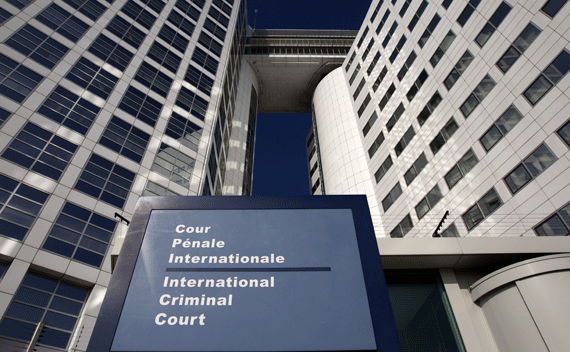Should Qaddafi Be Arrested?
More on:

I have a new post up at CNN’s Global Public Square on the significance of the request that the International Criminal Court (ICC) issue an arrest warrant for Muammar al-Qaddafi. You can read my thoughts on the issue at CNN’s page or below. The New York Times, Washington Post, Wall Street Journal, and Los Angeles Times all have stories on the possible ICC action.
On Monday, Luis Moreno-Ocampo, the chief prosecutor of the International Criminal Court (ICC), formally requested an arrest warrant for Libyan leader Muammar al-Qaddafi. Moreno-Ocampo wants the Libyan strongman charged with having “personally ordered attacks on unarmed Libyan civilians.”
Moreno-Ocampo’s request is being cheered around the world for understandable reasons. But indicting Qaddafi could have the perverse effect of making it harder to bring Libya’s civil war to a quick end.
The ICC was created in 2002 as the permanent predecessor to ad-hoc international justice bodies like the International Criminal Tribunals for Rwanda and Yugoslavia. The basic idea was a good one--leaders who commit genocide, war crimes, and crimes against humanity deserve to be punished. The ICC’s mandate kicks in when it is clear that national legal systems won’t bring a leader with blood on his hands to justice.
Oddly enough, neither the United States nor Libya is a party to the Rome Statute, which created the ICC. (President Bill Clinton signed the treaty in 2000, President George W. Bush “unsigned” it in 2002, and the U.S. Senate has never formally considered it let alone consented to it.)
The United States and Libya, as well as the roughly four dozen other countries that are not party to the treaty, worry that it will interfere in their legal systems or provide an opportunity to harass their citizens.
The 114 countries that have signed onto the Rome Statute, which includes every country in Europe, agreed to cooperate with the ICC. That means they are required to arrest anyone indicted by the court and to extradite him or her to The Hague for prosecution.
A decision to indict Qaddafi would mark the second time the ICC has tried to arrest a sitting head of state. The first time came two years ago when the ICC issued an arrest warrant for Sudan’s president, Omar al-Bashir. He was charged with committing genocide in Darfur region.
Al-Bashir, however, continues to run Sudan and travel around Africa and the Middle East. Indeed, members of the African Union so disliked the ICC decision to indict him that they considered withdrawing from the court in protest (so much for the solemnity of a signed treaty obligation).
A three-judge panel of the ICC is now considering Moreno-Ocampo’s request for a warrant. They can grant his request or deny it. But given that al-Bashir continues to flout his ICC indictment, Qaddafi probably isn’t worrying that Interpol will swoop in and read him his Miranda rights.
That does not mean a warrant for Qaddafi’s arrest would be without consequence. It would give him additional reason to dig in his heels. With the threat of arrest and trial in The Hague hanging over his head, he knows he will not have the option given dictators of old--going into exile to Paris (Baby Doc Duvalier) or retreat to Saudi Arabi (Idi Amin).
After all, European governments have hailed the formation of the ICC as a great legal achievement. Which European leader is going to risk angering his or her public by arguing that the ICC warrant should be ignored and Qaddafi allowed to go into exile, even if that might help bring the continued bloodshed in Libya to an end?
And that is the problem. The NATO-led military operation in Libya hits the two-month mark at the end of this week. Both a rebel victory and a stable ceasefire remain out of reach. A diplomatic initiative to persuade Qaddafi to step down offers one way out of the current stalemate. But Monday’s ICC indictment simply gives him another reason to hang on and fight.
Would you support letting Qaddafi go into exile if that would bring the fighting in Libya to an end?
More on:
 Online Store
Online Store
